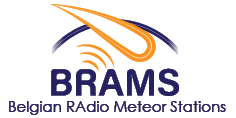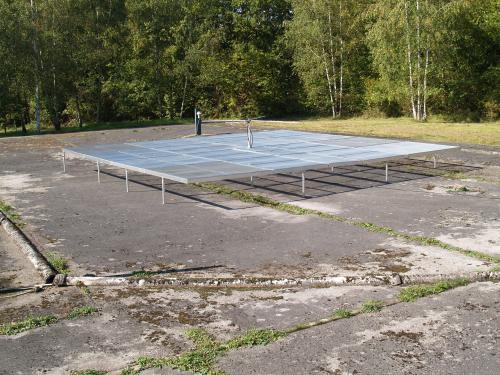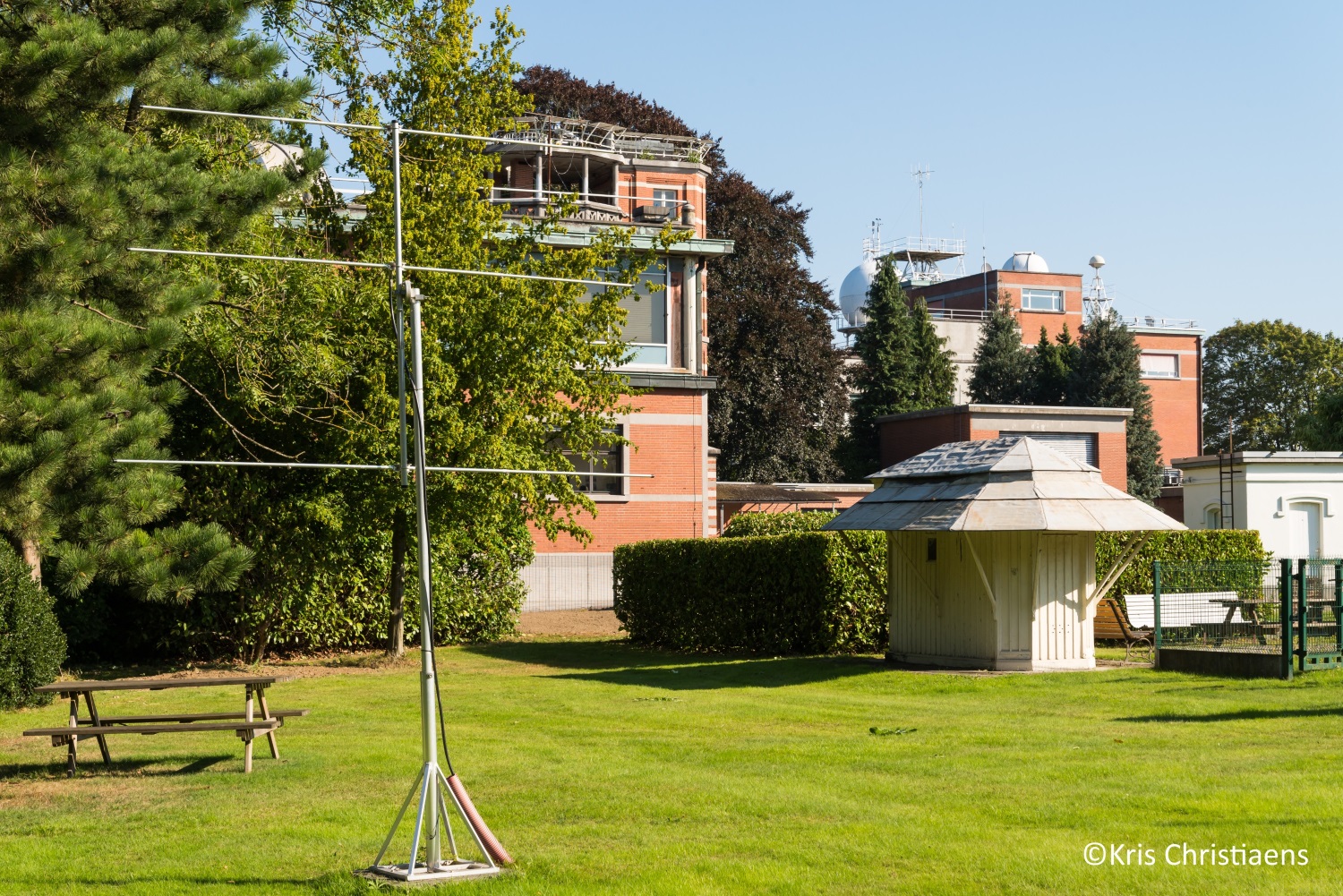What is BRAMS?
General description
BRAMS (Belgian RAdio Meteor Stations) is a network of radio receiving stations using forward scattering techniques to study the meteoroid population. The project is coordinated by the Belgian Institute for Space Aeronomy (BIRA-IASB), in the frame of the Solar-terrestrial Centre of Excellence (STCE).


It is also a very fruitful collaboration between professionals and amateurs since most stations are hosted either by Belgian radioamateurs, groups of amateur astronomers or astronomical public observatories. A dedicated beacon was installed in September 2010 in Dourbes (South of Belgium) at the Centre de Géophysique du Globe (which belongs to the Royal Meteorological Institute of Belgium (RMI) and acts as the transmitter. It emits a cw circularly polarized signal at a frequency of 49.97 MHz with a constant power of 130W.

In June 2022, 42 receiving stations are spread on the Belgian territory and neighbouring countries. They are equipped with hardware material procured by BIRA-IASB to listen to the beacon. See map of the existing stations. Each station is using a three-element Yagi antenna.
First sets of stations used a commercial ICOM-R75 receiver, an external sound card (as analog/digital converter), a GarminGPS clock (to synchronize data from the stations) and an amplitude calibrator designed at BIRA-IASB (to calibrate power profiles). The whole system was controlled by the freeware Spectrum Lab running on a local PC.
The more recent sets of stations use now a digital commercial receiver RSP2 and a RPi with our own program controlling the whole system. An additional GPS antenna is used to feed a GPS Disciplined Oscillator (GPSDO) which provides a very stable 24 MHz reference signal which serves to stabilize the local oscillators of both the RSP2 and the BRAMS calibrator.
The picture below is the receiving antenna used at the station in Uccle, which is identical at all stations, and set up vertically such that the gain of the antenna is rather close to the theoretical one.

If you are interested in joining our effort, you can host a station and present radio-observations of meteors to your visitors. If you have any question, please contact us.
Radio interferometer in Humain
One of our receiving stations is located in the radioastronomical site of Humain which belongs to the Royal Observatory of Belgium (ROB). This station has interferometric capabilities using the 5-antenna design described in Jones & Jones, Radio Science, 33, 55-65, 1998.

With this interferometric system we will be able to measure the directions of the radio meteor echoes with an accuracy of about 1°. This helps us to retrieve individual meteoroid trajectories.
Main objectives
The main objectives of this project are :
- To collect and standardise the meteor observations of all the stations.
- To write codes for automatic detection of underdense/overdense meteor echoes.
- To compute meteoroid flux densities for meteor showers and mass indexes for meteor showers and sporadic meteors.
- To determine individual meteor trajectory and speed from multi-station bservations of the same meteoroid
- To determine orbital parameters of multi-station meteoroids
- To analyse meteor profiles in order to retrieve physical parameters such as ionization, ionization efficieny and mass of the meteoroids
- To study head echoes and the so-called "epsilon" echoes
- To compare radio observations from the BRAMS network to optical observations from networks such as CAMS-BeNeLux, GMN, FRIPON or AllSky7
- To probe the Mesosphere-Lower-Thermosphere (MLT) and determine e.g. local temperatures or wind-speed measurements.
- To promote radio-observation of meteors via projects such as MOMSTER (STEM project) or the Radio Meteor Zoo (Citizen Science Project).
BRAMS Team
BRAMS was initiated by Hervé Lamy from the Belgian Institute for Space Aeronomy (BIRA-IASB) and is supported by the Solar-terrestrial Centre of Excellence (STCE).
- Johan De Keyser (Operational Director)
- Hervé Lamy (Project Leader)
- Michel Anciaux
- Stijn Calders
- Antoine Calegaro
- Joachim Balis
- Sylvain Ranvier
- And many external partners hosting our BRAMS stations.
If you have any questions about this project, please contact Hervé Lamy.






